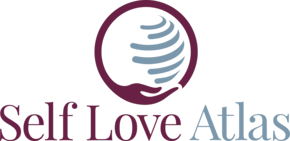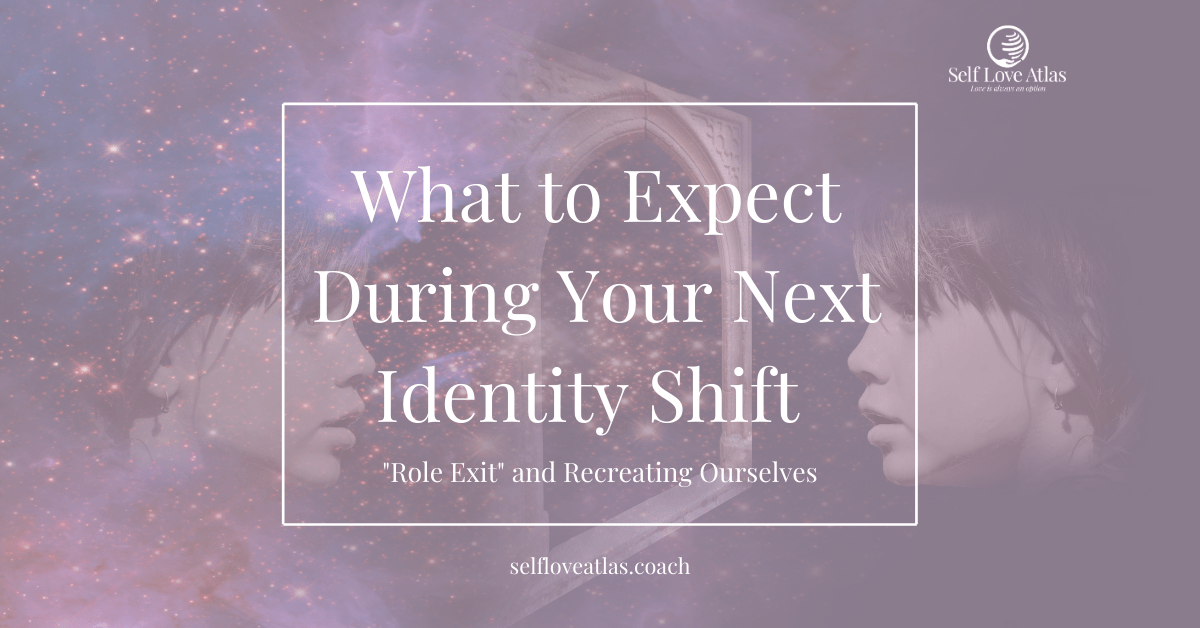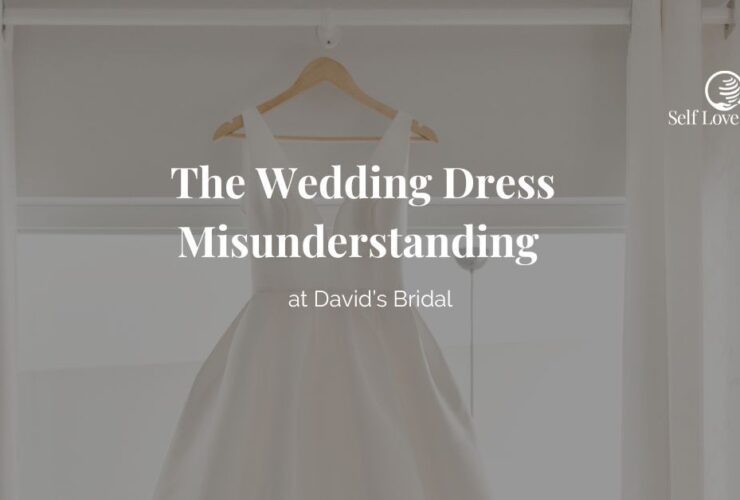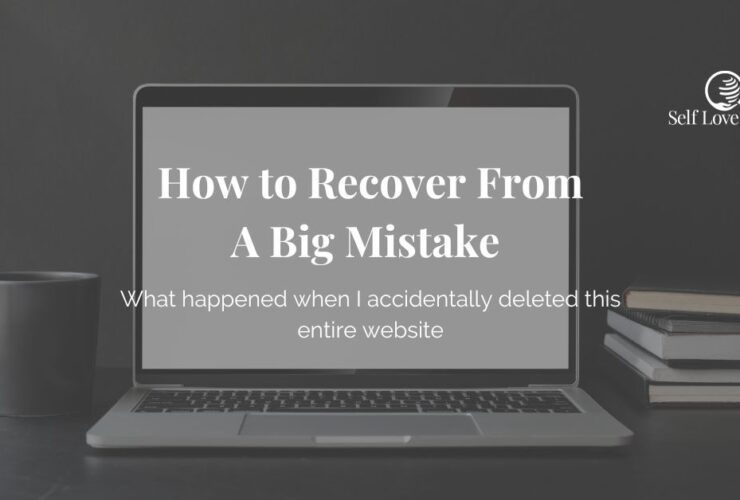What to Expect During Your Next Identity Shift
Having labels or identities that help explain who we are can give us a strong sense of self. But what happens when we lose one of our identities? What happens when something we once called ourselves no longer fits the picture of our lives? In this post, you’ll learn what to expect when you lose an identity and what to do to make it a little less painful.
The Loss That Comes With Personal Growth
When we move into new roles in our lives, whether it be a new job, a new relationship, or a new lifestyle, we inherently have to leave something behind. But what we leave behind is deeper than just a location, objects, or people. For example, When you graduate high school or college, you’re leaving behind not only that place, but the part of yourself that identified as “a student.”
The same goes for any other transition in our lives. We move on to a new phase, which comes with new roles and new labels to identify ourselves with. And in their wake, we leave behind the old roles we played, along with some of the labels we used.
This is an inevitable process that human beings are blessed to go through many times in life. But at the same time, this hurts!
New phases of our lives simultaneously mean growth and loss, excitement and grief.
While it’s exciting to become better or newer versions of ourselves, it can really suck to have to let go of identities we enjoyed. The labels we use to understand ourselves can be both personal and special to us, so trading them out or dropping them literally is like losing pieces of ourselves.
The natural grieving that results from this is healthy, and if we allow ourselves to feel it, we’ll be much better able to move on to new things and new versions of ourselves in a happy and stable way. But some people resist this kind of pain, and cause themselves more grief because of it.
“Skipping” The Grief of Losing an Identity
Sometimes, because the grief of losing an identity can be uncomfortable, people try to skip over the grief and move into an entirely new identity. They enjoyed the stability of one identity, and can’t stand being without that stability and clarity within themselves. So to cope, they try to take on a new identity immediately, without being present with themselves or their emotions.
This is why some people rebound into new relationships immediately after another one ends. They are so uncomfortable with the new identity and role of being single after having been “in a relationship” that they jump into the next one without grieving the first.
As you may have guessed, skipping the grief of role exit or identity loss generally doesn’t work well. Pushing the grief away is actually a lot like trying to push a beach ball down into a pool of water, it’s a struggle to keep it under the surface, and as soon as you slip, it pops up in the most unexpected and inconvenient places.

Once we can recognize that allowing ourselves to feel our loss and discomfort can strengthen our character and our resilience, it becomes something that we can lean into because we know it is just as “healing” as it is “painful” (one might even call it “resetting” or “time to check in with myself”).
Coaching Inspires Conversations About Who We Are and How we Identify Ourselves
If you’ve worked with me as a coach or had a consultation call with me, you know that I coach and get coached on a regular basis. I receive coaching several times a week to ensure that I am “practicing what I preach” and fully “living it to give it.”
During one of my recent sessions, a coach used a metaphorical tool to help me gain information about my “inner life” (which is SUPER interesting, and if you’re intrigued about it, sign up for a free session with me to see what it’s like). And through that session, what started as a conversation about my living space turned into a discovery that I am currently in the process of grieving lost identities.
For context: I was storing many of the things I used in college (before the pandemic) under my current bed. And just from a conversation about the items under my bed, we found that the life I had up at school suddenly no longer had a “place” when I moved home, both in terms of objects, and in terms of roles I fulfilled socially.
So many identities came to an end unexpectedly, and until then, I hadn’t realized how deeply I needed to grieve the loss of those identities.
This brought tears to my eyes. Because if I was no longer “a student,” “a writing consultant,” “a marching band member,” “a dialogue facilitator,” “an organization president” or “a volunteer communications teacher in the local prison,” then who am I?
The Inevitable Identity Crisis That Comes From “Role Exit”
I think this happens to everyone at some point in their lives. One thing ends, another begins, and then you have a bunch of objects, books, clothes, etc. that were part of a life you lived, part of the person you were… but not the life you live or the person you are now.
For example, many middle-aged people have closets full of clothing that suited a phase of occupations they held professionally, and when they shifted into something new, those clothes just end up sitting, untouched, without a proper place in their current identities or their lives. This might affect a person’s self-image or self-concepts, simply because this change was as much internal as it was external. The clothes are just a physical sign that that shift has happened.

It’s also worth mentioning that the loss of our “roles” in society and social situations are often completely out of our control. Which often makes it hurt even worse.
For example, there may come a time where you are not longer able to do something with your body that you used to. Or perhaps a person may realize that they are infertile when they were previously planning on having kids. Maybe someone experiences an unexpected change in relationship or marital status, or even if individuals get fired or laid off from a job. All of these circumstances and many more can create this forced shift in self-concept.
And when people face this kind of thing, they ask themselves, “If I’m not that, who am I?”
This experience has a name, and it’s called “role exit”
According to the Sociology Group, role exit is a basic concept in sociology which explains the experience of “discontinuing from a role [that is central to one’s self-identity] in order to establish a new one. An example is the transformation of an individual into a parent.”
So the next time you find yourself feeling sad or uncomfortable because your life is changing, know this is natural! This is normal! And you’re simply experiencing the effects of role exit. This is also a likely indicator that you are growing through your life experiences.
As long as you’re willing to feel that discomfort and be creative about bringing the good parts forward with you (in whatever ways are possible for you), then this loss of identity doesn’t need to feel like a totally negative experience.
Role Exit and Identity Shifts Aren’t All Bad!
Just because we’re growing and leaving some things behind, doesn’t mean we can’t find new ways to keep the pieces that we liked and integrate them into new labels and identities.
Something I’m currently exploring is “How can I creatively bring my favorite parts of my past identities into my life now?”
This involves assessing what we like and don’t like about earlier versions of ourselves, having compassion for those versions, and selectively choosing what will best serve us moving forward.
For example, something I really loved about being a writing consultant was helping people dissolve their fears and insecurities about writing. Now, as a coach, I get to work with people to dissolve their fears and insecurities about all sorts of things!
Even though I no longer fulfill all the roles of a writing consultant, I still am finding ways to do and fulfill the best part about having that job. To me, this means I didn’t lose that role entirely. Therefore I can grieve the change and move on to enjoying the pieces I’ve brought into my new life.
So the next time you’re going through an identity shift, be present with yourself. If you have to leave something behind, ask yourself what you can bring forward, and how you can creatively keep the best parts of your past self, while also discovering even better parts of the newer you.
Did this post resonate with you? If so, I’d love to hear from you! Leave a comment or send me a message to share your thoughts. For more uplifting content, check out some other posts on my blog, follow me on instagram @morgan_barbret, or sign up for the Self Love Atlas Newsletter!
Cheers,
Morgan Rita Barbret






Morgan, well said. I remember reading the book “Passages” by Gail Sheehy and you have captured some of her insights. As we age we have to let go of many roles we had but new ones are always coming up. Although I never want to stop being a nurse. The one role I always wanted and glad I was able to do. Keep writing.
Love Aunt Linda
Thank you so much Aunt Linda. I’m so happy you loved and took pride in your work. From what I’ve heard you were SO good at it! I’m excited to see what new roles will come up for myself and everyone else in my life as time goes on. And I’ll have to look into that book :).